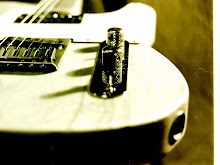... or At Least an Emotional Rescue
 A hole in the heart of the city, a scar on the psyche of the nation ...
A hole in the heart of the city, a scar on the psyche of the nation ...
In the flurry of 10th anniversary of 9/11 tributes, observations, reflections and analysis, NPR Music did an interesting, though limited, article on how in the immediate aftermath of 9/11 many of us looked to music and our favorite musical artists to help us make sense of what had transpired – the unthinkable, the unimaginable. Check out the NPR piece here.
For my part, I caught concerts by three artists in the month following the attacks.
First was up was David Byrne at Avalon in Boston, 10 days or so after that infamous day. It was the first time I had seen Byrne and, to be honest, I don’t remember a whole lot about the show. Perhaps I too was still a bit numb. I do remember not being sure quite what to expect of the concert – and not just because I hadn’t seen Byrne before. There was such a different and somber mood in the air. The vibe was utterly changed, at least for a while.
Prior to the show, I wondered: How will it be? How will the audience behave? Will the performers address the situation? Will it be a concert experience like we’re accustomed to, or will it be something else? Such was the pervasiveness of the feeling that our world had been twisted in some unknown and irreversible way.
I do remember Byrne saying something along the lines of what was mentioned in the NPR piece when introducing of the old Talking Heads classic, “Life During War Time,” but that’s about it.
A couple of weeks later, on Oct. 2, I was back at Avalon to see Wilco. It was the first of many times that I’ve seen the Chicago-based folk/alt-country/art rockers play live. At this time, guitarist Jay Bennett had just been booted from the band and Yankee Hotel Foxtrot was yet to be released, after much inner-band turmoil and record-company discombobulation over the release of the album (all well-documented in the film I Am Trying to Break Your Heart), but it was the record the band was debuting during that fall tour and it was a convincing show.
In hindsight, this was clearly a transitional period for the band, both in terms of musical focus and member wise. Having shed their alt-country roots, they were just beginning their lengthy foray into more adventurous pop art-rock explorations, which would later result in some incredibly inspired cacophony that conjured comparisons to Pink Floyd and Radiohead at times. But in early October 2001, those days were yet to arrive and guitarist extraordinaire Nels Cline and multi-instrumentalist Pat Sansone were not yet part of the band. Yhis was a rare period in which Wilco performed as a four piece.
But back to the Avalon concert: band leader Jeff Tweedy made no mention of recent events. In fact, there was almost no direct talking to the audience at all – in itself unusual given his typical loquaciousness. But the new song “War on War” from Yankee Hotel Foxtrot and Mermaid Avenue’s “One By One” both seemed to be imbued with extra resonance as the crowd and the band tuned in to the poignancy of the moment in a noticeable way, even if it wasn’t overtly acknowledged.
Just four days later, I caught back-to-back performances by The Waterboys in New York and Boston. By now, almost a month after the attacks, the magnitude and lasting effect – in essence the realization that our world was truly and fundamentally changed – seemingly forever – had really sunk in.
Mike Scott and Co., touring in support of their new release A Rock in the Weary Land, played concerts that perfectly captured the spirit of resilience in the face of malevolent times. At once uplifting and defiant (in thoughtful way), it was as if many of the songs on A Rock in a Weary Land had been written specifically for the occasion. Even old favorites like “We Will Not Be Lovers,” “The Pan Within” and “Savage Earth Heart” took on a passionate intensity that seemed driven by the times.
The Scotsman also made the most direct statements of any of the concerts regarding the current state of affairs:
In New York: “We’re so glad to see you all. We love this city. And after what happened on September 11th, we really are proud to play for New Yorkers. And we stand shoulder to shoulder with America, too.”
And, in Boston: “Tonight there’s war in the world, but the show goes on.” ... And, “You know, after what happened September 11th, it’s our honor to play for Americans. We’re really glad to be here with you. I noticed that everything is different, and even in a little matter like rock songs, things are different. Stuff that seemed important before, now seems really trivial. We’re going to do a song that I used to dedicate to Jerry Springer, it doesn’t seem so important now, but it’s still fun to poke one at Jerry. The song is called ‘Dumbing Down the World.’”
Which raises an interesting question for today: Ten years on, are we any smarter?








